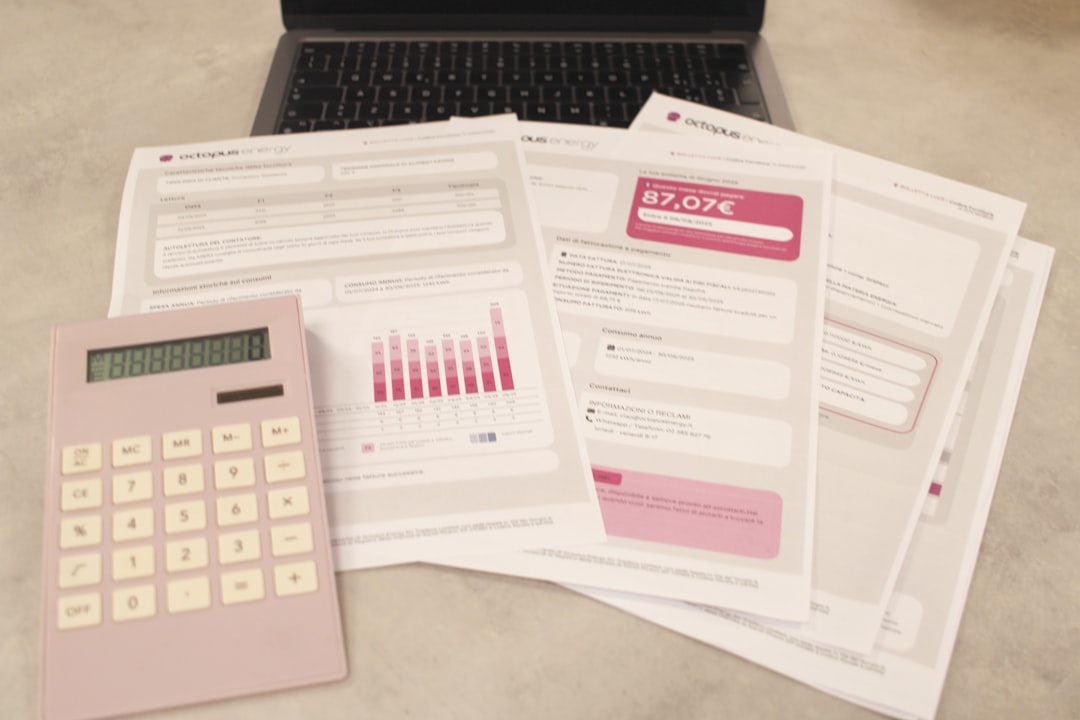As you delve into the world of accounting, you may find yourself increasingly surrounded by the influence of artificial intelligence (AI). This technology, once a mere concept in science fiction, has now become an integral part of various industries, including accounting. AI is revolutionizing how financial data is processed, analyzed, and reported, leading to significant changes in the profession.
The integration of AI into accounting practices not only enhances efficiency but also transforms the role of accountants, pushing them to adapt to new tools and methodologies. In this rapidly evolving landscape, understanding AI’s capabilities and implications is crucial for anyone involved in accounting. From automating mundane tasks to providing advanced analytical insights, AI is reshaping the profession in ways that were previously unimaginable.
As you explore the impact of AI on traditional accounting tasks and the rise of automation, you will gain a clearer picture of how this technology is redefining the future of accounting.
Key Takeaways
- AI is revolutionizing the accounting industry by automating repetitive tasks and providing advanced data analysis capabilities.
- Traditional accounting tasks such as data entry, reconciliation, and basic analysis are being significantly impacted by AI, leading to increased efficiency and accuracy.
- Automation is on the rise in accounting, with AI taking over routine tasks and allowing accountants to focus on higher-value activities such as strategic planning and decision-making.
- AI plays a crucial role in financial reporting and analysis by processing large volumes of data, identifying trends, and providing valuable insights for informed decision-making.
- While AI brings numerous benefits such as increased efficiency and accuracy, it also presents challenges such as job displacement and the need for upskilling in the accounting profession.
The Impact of AI on Traditional Accounting Tasks
When you think about traditional accounting tasks, you might envision a range of activities such as bookkeeping, data entry, and reconciliations. These tasks have historically been time-consuming and prone to human error. However, with the advent of AI, many of these processes are being streamlined and optimized.
For instance, AI-powered software can now handle data entry with remarkable accuracy, significantly reducing the time accountants spend on these repetitive tasks. This shift allows you to focus on more strategic aspects of your work, such as financial planning and advisory services. Moreover, AI’s ability to analyze vast amounts of data quickly and efficiently means that you can gain insights that were previously difficult to obtain.
Predictive analytics tools can identify trends and anomalies in financial data, enabling you to make informed decisions based on real-time information. This transformation not only enhances your productivity but also elevates the value you bring to your clients or organization. As traditional tasks become automated, the role of accountants is evolving from mere number crunchers to strategic advisors who leverage technology to provide deeper insights.
The Rise of Automation in Accounting

Automation is at the forefront of the changes brought about by AI in accounting. As you witness the rise of automated systems, it becomes clear that these technologies are designed to take over repetitive and mundane tasks that once consumed significant time and resources. For example, invoice processing and expense management can now be handled by AI-driven platforms that automatically capture data from receipts and invoices, categorize expenses, and even flag discrepancies for review.
This level of automation not only increases efficiency but also minimizes the risk of errors that can arise from manual data entry. The implications of automation extend beyond just efficiency gains; they also reshape the workforce landscape within accounting firms. As more tasks become automated, you may find that the demand for traditional bookkeeping roles diminishes.
However, this does not mean that job opportunities will vanish entirely. Instead, there will be a growing need for professionals who can manage and interpret the outputs generated by these automated systems. Embracing automation means adapting to new roles that require a blend of technical skills and analytical thinking.
The Role of AI in Financial Reporting and Analysis
| Metrics | Value |
|---|---|
| Accuracy of Financial Reports | 95% |
| Time Saved in Analysis | 50% |
| Reduction in Errors | 80% |
| Cost Savings | 100,000 |
Financial reporting and analysis are critical components of accounting that benefit immensely from AI integration. As you engage with financial data, AI tools can assist in generating reports with unprecedented speed and accuracy. These tools can analyze historical data trends and provide forecasts that help you make informed decisions about future financial strategies.
By automating the reporting process, you can spend less time compiling data and more time interpreting it to provide valuable insights to stakeholders. Furthermore, AI enhances the quality of financial analysis by identifying patterns that may not be immediately apparent through traditional methods. For instance, machine learning algorithms can detect anomalies in financial statements that could indicate potential fraud or mismanagement.
This capability not only strengthens your role as a financial analyst but also adds a layer of security and reliability to the financial reporting process. As you leverage AI for reporting and analysis, you position yourself as a forward-thinking professional who embraces technology to enhance decision-making.
The Benefits and Challenges of AI in Accounting
While the benefits of AI in accounting are substantial, it is essential to recognize the challenges that accompany this technological shift. On one hand, AI offers increased efficiency, reduced costs, and enhanced accuracy in financial processes. You can automate routine tasks, allowing for more time to focus on strategic initiatives that drive business growth.
Additionally, AI’s ability to analyze large datasets provides insights that can lead to better decision-making and improved financial performance. On the other hand, the implementation of AI in accounting presents challenges that must be addressed. One significant concern is the potential for job displacement as automation takes over traditional roles.
While new opportunities will arise, there may be a transitional period where professionals need to reskill or upskill to remain relevant in the workforce. Additionally, there are concerns about data security and privacy as more financial information is processed through AI systems. As you navigate these challenges, it is crucial to strike a balance between embracing technology and ensuring ethical practices within the profession.
The Future of Accounting Jobs in the Age of AI

As you contemplate the future of accounting jobs in an era dominated by AI, it becomes evident that the landscape is shifting dramatically. While some traditional roles may diminish due to automation, new opportunities are emerging that require a different skill set. For instance, positions focused on data analysis, cybersecurity, and strategic advisory services are likely to see increased demand as organizations seek professionals who can interpret complex data and provide actionable insights.
Moreover, the future of accounting jobs will likely emphasize collaboration between humans and machines. Rather than viewing AI as a replacement for human accountants, consider it a tool that enhances your capabilities. You will need to adapt by developing skills in technology management and data interpretation while maintaining your core accounting knowledge.
This evolution will enable you to thrive in a profession that increasingly values analytical thinking and strategic insight over rote tasks.
How AI is Changing the Skillset Required for Accountants
As AI continues to reshape the accounting profession, the skillset required for accountants is undergoing a significant transformation. You may find that technical skills related to data analysis and familiarity with AI tools are becoming essential components of your professional toolkit. Understanding how to leverage AI-driven software for tasks such as forecasting and budgeting will set you apart in a competitive job market.
In addition to technical skills, soft skills such as critical thinking and communication are becoming increasingly important. As an accountant in an AI-driven environment, you will need to interpret complex data findings and communicate them effectively to stakeholders who may not have a technical background. This ability to bridge the gap between technology and business strategy will be invaluable as organizations seek professionals who can provide insights that drive decision-making.
The Ethical Implications of AI in Accounting
The integration of AI into accounting raises important ethical considerations that you must navigate as a professional in the field. One primary concern is data privacy; as more financial information is processed through AI systems, ensuring that sensitive data remains secure is paramount. You must be vigilant about compliance with regulations such as GDPR or CCPA while using AI tools that handle personal or financial information.
Additionally, there are ethical implications related to bias in AI algorithms. If not carefully monitored, these algorithms can perpetuate existing biases present in historical data, leading to skewed analyses or unfair treatment of certain groups. As an accountant utilizing AI technology, it is your responsibility to advocate for transparency and fairness in how these systems are designed and implemented.
The Role of Accountants in Embracing AI Technology
As an accountant navigating this new landscape, your role extends beyond merely adapting to AI technology; it involves actively embracing it as a catalyst for change within your organization or practice. By championing the adoption of AI tools, you can help streamline processes and improve overall efficiency within your team or firm. Your willingness to explore innovative solutions positions you as a leader who recognizes the potential benefits of technology.
Moreover, embracing AI technology means fostering a culture of continuous learning within your organization. Encouraging colleagues to upskill and stay informed about emerging technologies will create an environment where everyone feels empowered to leverage AI effectively. By taking on this leadership role, you not only enhance your own career prospects but also contribute positively to the evolution of the accounting profession as a whole.
Strategies for Accountants to Adapt to the Rise of AI
To successfully adapt to the rise of AI in accounting, consider implementing several strategies that will enhance your professional development and ensure your relevance in an evolving job market. First and foremost, invest time in learning about emerging technologies related to AI and their applications within accounting practices. Online courses, webinars, and industry conferences can provide valuable insights into how these tools work and how they can be integrated into your workflow.
Additionally, focus on developing a strong foundation in data analytics. Familiarize yourself with software tools that enable data visualization and analysis so that you can effectively interpret complex datasets generated by AI systems. Building these skills will not only enhance your employability but also empower you to provide valuable insights that drive business decisions.
The Coexistence of AI and Human Accountants
In conclusion, as you navigate the evolving landscape of accounting shaped by artificial intelligence, it becomes clear that coexistence between AI technology and human accountants is not only possible but essential for future success. While automation may take over certain routine tasks, it also opens up new opportunities for professionals like yourself to engage in more strategic roles that require critical thinking and analytical skills. By embracing AI as a tool rather than viewing it as a threat, you position yourself at the forefront of an industry transformation that promises greater efficiency and enhanced decision-making capabilities.
As you adapt your skillset and embrace new technologies, remember that your unique human insights will always play a vital role in shaping financial strategies and driving business success in an increasingly automated world.
The integration of AI in various industries has sparked discussions about its impact on employment, particularly in fields like accounting. As AI technology continues to evolve, many are concerned about the potential for job displacement. However, it’s important to consider how AI can also enhance the efficiency and accuracy of accounting tasks, allowing professionals to focus on more strategic roles. For a deeper exploration of how AI is influencing the accounting sector and the broader implications for the workforce, you can read a related article on this topic by visiting How Wealth Grows. This article delves into the nuances of AI’s role in accounting and offers insights into how the industry is adapting to these technological advancements.
FAQs
What is AI?
AI, or artificial intelligence, refers to the simulation of human intelligence in machines that are programmed to think and act like humans. This includes tasks such as learning, problem-solving, and decision-making.
How is AI impacting accounting jobs?
AI is impacting accounting jobs by automating repetitive tasks such as data entry, transaction processing, and report generation. This allows accountants to focus on more strategic and analytical tasks.
Is AI taking over accounting jobs?
AI is not taking over accounting jobs entirely, but it is changing the nature of the work. While some routine tasks may be automated, accountants are still needed to interpret data, provide strategic insights, and make decisions based on the information provided by AI systems.
What are the benefits of AI in accounting?
The benefits of AI in accounting include increased efficiency, reduced errors, improved data analysis, and the ability to handle large volumes of data. AI can also free up accountants to focus on higher-value tasks that require human judgment and expertise.
What skills will accountants need in the age of AI?
In the age of AI, accountants will need to develop skills in data analysis, critical thinking, problem-solving, and communication. They will also need to be proficient in using AI tools and technologies to enhance their work.
